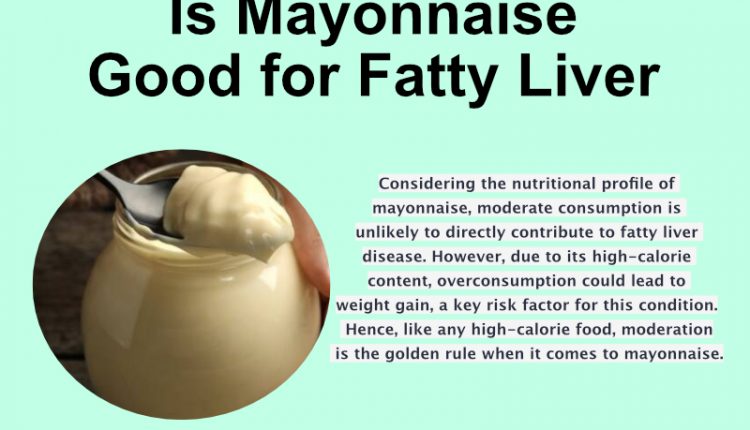Is Mayonnaise Good for Fatty Liver? A Comprehensive Analysis

Is Mayonnaise Good for Fatty Liver? A Comprehensive Analysis
Introduction
Fatty liver disease, a condition characterized by the accumulation of excess fat in liver cells, is a global health concern that is intricately linked to diet and lifestyle. As we navigate through the maze of dietary do’s and don’ts for managing this condition, a common query that often arises is, “Is mayonnaise good for fatty liver?” This article aims to address this question in detail, focusing on the nutritional aspects of mayonnaise and its potential impact on liver health.
Understanding Mayonnaise
Mayonnaise is a widely used condiment, known for its creamy texture and tangy flavor, which is derived from its primary ingredients – egg yolks, oil, vinegar or lemon juice, and seasonings. However, the nutritional profile of mayonnaise is what determines its effect on liver health.
Nutritional Profile of Mayonnaise
A standard serving of mayonnaise (one tablespoon) typically contains around 90-100 calories, nearly all of which come from fat. The fat content is primarily unsaturated fat, which is considered heart-healthy, but it also contains a small amount of saturated fat. Mayonnaise is low in carbohydrates and protein and contains a moderate amount of sodium.
Mayonnaise and Fatty Liver: The Connection
The development of fatty liver disease is often associated with a diet high in saturated fats and added sugars. Given that mayonnaise is high in fats, albeit mostly unsaturated ones, it’s worth examining whether its consumption could contribute to or exacerbate fatty liver disease.
- Fat Content: While mayonnaise does contain a significant amount of fat, most of it is unsaturated fat, particularly monounsaturated fat, which is considered beneficial for heart health. However, the high calorie content of mayonnaise can contribute to weight gain if consumed in large amounts, which is a risk factor for developing fatty liver disease.
- Saturated Fat: Mayonnaise contains a small amount of saturated fat. A diet high in saturated fats can lead to obesity, increased cholesterol levels, and inflammation, all of which can contribute to fatty liver disease.
- Sodium: Mayonnaise contains a moderate amount of sodium. High sodium intake can lead to fluid retention and increased blood pressure, which can exacerbate liver damage in individuals with fatty liver disease.
- Cholesterol: Mayonnaise, due to its egg yolk content, contains dietary cholesterol. However, dietary cholesterol does not have as much of an impact on blood cholesterol levels as previously thought, and moderate consumption of mayonnaise is unlikely to significantly affect cholesterol levels or contribute to fatty liver disease.
The Verdict: Is Mayonnaise Good for Fatty Liver?
Given the nutritional profile of mayonnaise, moderate consumption is unlikely to directly contribute to fatty liver disease. However, due to its high calorie content, excessive consumption could lead to weight gain, a key risk factor for developing fatty liver disease. Therefore, like with any high-calorie food, moderation is key.
It’s also worth noting that mayonnaise varieties can differ significantly in their nutritional content. For example, low-fat or light mayonnaise contains fewer calories and fats, while versions made with olive oil have a higher content of heart-healthy monounsaturated fats. Reading labels and making informed choices can help you incorporate mayonnaise into a balanced diet that supports liver health.
While mayonnaise is not inherently harmful to liver health, its high calorie and fat content mean it should be consumed in moderation as part of a balanced diet. If you have fatty liver disease, it’s always a good idea to discuss your diet with a healthcare provider or a dietitian who can provide personalized advice based on your health needs.
